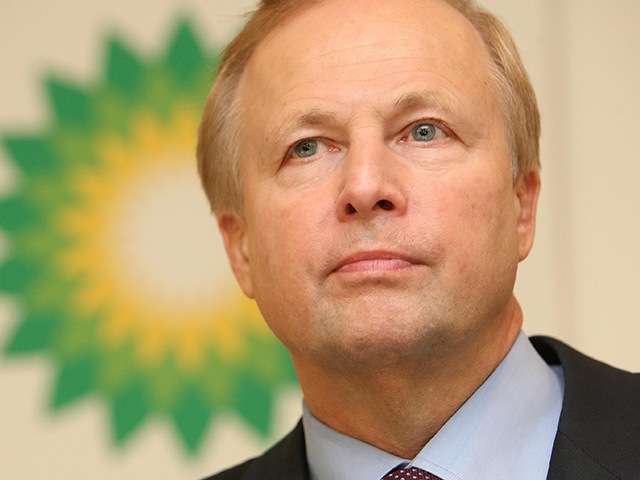
BP is to cut investment for this year by a fifth or as much as six billion US dollars (£4 billion) as it adjusts to the “new reality” of lower oil prices, boss Bob Dudley said today.
His stark message came as the group slumped to a 969 million dollar (£645 million) replacement cost loss for the fourth quarter, down from a profit of 1.51 billion US dollars for the same period in 2014.
BP recorded a $3.6 billion dollar hit including write-downs on assets in the North Sea and Angola and on the falling oil price.
Its results came as oil and has exploration firm BG Group – originally a spin-off from the privatisation of British Gas – also slashed capital expenditure plans for 2015, by $6-7 billion.
Brent crude has slumped by more than half since last summer to reach nearly $45 a barrel in January though it has since bounced back to about $55.
“Our focus must now be on resetting BP: managing and rebalancing our capital programme and cost base for the new reality of lower prices while always maintaining safe, reliable and efficient operations.”
Annual replacement cost profit for 2014 was down 66% to 8.07 billion US dollars (£5.37 billion).
However, underlying figures were not as bad as expected, showing a 20% fall to 2.24 billion dollars (£1.49 billion) for the fourth quarter and a 10% decline for 2014 to $12.14 billion.
Shares climbed as much as 6% on the results and the decision by BP to cut spending in line with rivals though some of the gain ebbed away later in the session.
Last week Royal Dutch Shell said it would cut 15 billion US dollars (£10 billion) from its spending plans over the next three years.
Despite the loss for the latest period, BP – a mainstay of UK pension funds – announced a quarterly dividend of 10 cents (6.7p) per share, to be paid in March.
Mr Dudley said: “Throughout the work to reset BP, the dividend remains the first priority within our financial framework.”
The company said it was “now taking action to respond to the likelihood of oil prices remaining low into the medium term”.
BP said it planned to reduce spending on exploration and postpone projects in its upstream business – which includes oil and natural gas field development, production, storage and processing.
It will also mothball some projects in its downstream operations – the part of the business that includes refineries and manufacturing as well as fuel marketing and global oil supply.
As a result capital expenditure will total 20 billion US dollars (£13 billion) this year, a fifth lower than previous guidance of $24-26 billion, the group said.
BP also said it would continue its divestments, of which it has agreed $4.7 billion since 2013, with the total expected to double to $10 billion by the end of 2015.
It added that total cash costs for last year fell by more than $1billion and it was “in action to deliver further efficiencies in 2015”.
The company, which employs 15,000 people in the UK, said last month that it would cut 300 North Sea jobs following a review of its operations.
BP’s underlying earnings from Rosneft – the Russian oil firm in which it has a 20% stake – fell by 57% to $470 million.
The result was affected by the fall in the oil price though foreign exchange effects had a “favourable impact” over a period when the rouble plummeted.
Meanwhile, BP was still counting the cost of the blow-out of the Deepwater Horizon rig in 2010 which killed 11 workers and spilled millions of barrels of oil into the Gulf of Mexico, damaging fishing and tourism as well as marine and wildlife habitats.
It added another $477 million charge for the fourth quarter taking its total charge to date for the spill is $43.5 billion.
Kim Fustier, analyst at Edison Investment Research, said: “BP’s results were more resilient than expected thanks to decent downstream results and the positive impact of a weaker rouble on Rosneft’s earnings.”
Elsewhere in the sector, BG took an 8.9 billion US dollar (£5.9 billion) hit, mainly driven by the slump in global commodity prices, as it reported a 5.03 billion US dollar (£3.35 billion) loss for the fourth quarter.
It also said that its planned capital expenditure for 2015 would be “significantly lower” than last year, falling between 6-7 billion US dollars (£4-£4.7 billion).
BG was created in 1997 when British Gas demerged into two separately-listed companies, with Centrica having responsibility for the retail side of the business.
Recommended for you
